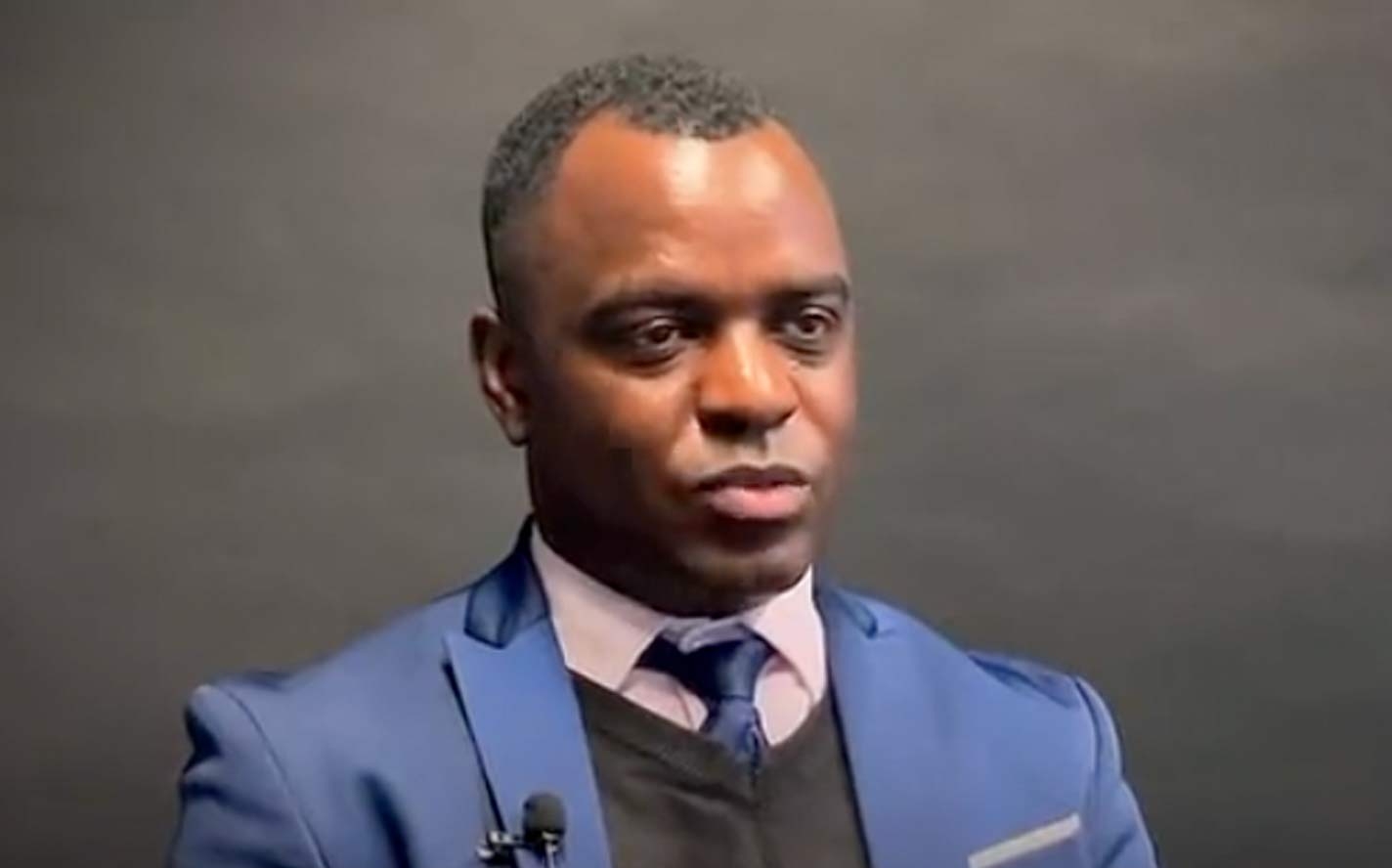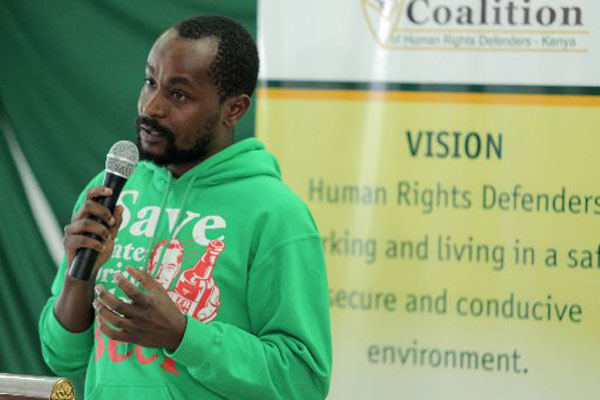
Ugandan human rights defender Frank Mugisha. (Photo courtesy of Twitter)
Now that Uganda’s cruel new Anti-Homosexuality Act has taken effect, the Ugandan LGBTQ community is under siege,
Human rights activist Frank Mugisha described the homophobic crackdown:
[A]rrests and detentions of queer folks are ongoing with reckless abandon. The law enforcement in concert with members of the public are sweeping in and those suspected are facing it rough and this is mostly the poor and uneducated without access to lawyers, and many are now on remand.
The situation is a lot worse with the transgender community. Housing and tenancy evictions have increased by folds and the few people willing to house those that identify as queer have shot the prices beyond manageable on top of the economic reality of being jobless as result of the law that makes it criminal to employ a queer person.
Mugisha included that description in a commentary in the Ugandan Observer that explains his petition to the Constitutional Court that seeks to have the law overturned.
Why I petitioned court against the Anti-Homosexuality Act
Last week, I and spirited members of the public ranging from members of parliament, human rights activists with skin in the game and a veteran journalist moved a petition to the Constitutional Court challenging the barbaric and repugnant Anti-Homosexuality Act.
The Act provides for a ten-year jail term for “attempted homosexuality”, a 20-year jail term for “promotion of homosexuality”, a life sentence for “the offence of homosexuality” and a death penalty for “aggravated homosexuality”.
The said law took effect on May 30 upon being gazetted and its ramifications are cascading down the vulnerable LGBTI populace, an issue I will address after stating my core reasons for petitioning court and why court as an arena is important in this war against homophobia in which patriarchy is imbricated.
I believe that that by legislating against the queer community and making a victimless crime such as consented sex between individuals of same sex is a fundamental violation of the right to privacy enshrined within the letter of our Constitution.
This is because it would mean that the state would have to surveille people without consent to prove the same, as no person consenting to the sex would file complaint against self to the authorities.

Eric Gitari, former executive director of the National Gay and Lesbian Human Rights Commission of Kenya. (Photo courtesy of the Daily Nation)
Secondly, the law introduces the offence of promotion under section 11 and as a human rights advocate and member on numerous boards of organizations that have cut their teeth in LGBTQI advocacy, I felt criminalizing our activities was capping our freedom of association as the Supreme Court of Kenya recently noted in NGOs Coordination Board vs Eric Gitari & Ors stating that “just like everyone else, [LGBTIQ+ people] have a right to freedom of association which includes the right to form an association of any kind.”
WHY USE COURTS AS A TOOL TO SOCIAL ENGINEERING?
As noted above, in Kenya both the executive and parliament were taking a snail-like pace to recognize the rights and dignity of minorities; courts became necessary arenas to fight battles and since they are unelected, they are more likely to exercise their power judiciously and fairly without fear of the mobs at the ballot.
Constitutions and rights mentioned thereunder are mostly meant to protect minorities and who better to pronounce themselves than court.
Courts across the continent are moving towards the realization of the rights and dignity of sexual minorities; examples are legion in South Africa which protects sexual minorities explicitly within the text of the constitution; Botswana and Namibian courts have moved to legalize same-sex marriages.
I am aware of the limitations of lawfare, but I also know how important a cog in the wheel it is as we strive to complete decriminalization. My petition will also provide court another opportunity to stand to be counted by substantively answering whether queer folks have a place and rights in this our beautiful Uganda.
IMPACT OF THE LAW
By the time of revising this piece, arrests and detentions of queer folks are ongoing with reckless abandon. The law enforcement in concert with members of the public are sweeping in and those suspected, are facing it rough and this is mostly the poor and uneducated without access to lawyers, and many are now on remand.
The situation is a lot worse with the transgender community. Housing and tenancy evictions have increased by folds and the few people willing to house those that identify as queer have shot the prices beyond manageable on top of the economic reality of being jobless as result of the law that makes it criminal to employ a queer person.
Those of us with our bolts and nuts in advocacy are under extreme pressure. Gayatri Spivak, reading Jacques Derrida, reminds us that “law is not justice.”
Apartheid and slavery were law, and such moments call out on subversion to save humanity. I know history will be kind.
Source: African Human Rights Media Network member Erasing 76 Crimes.
COMMENTS